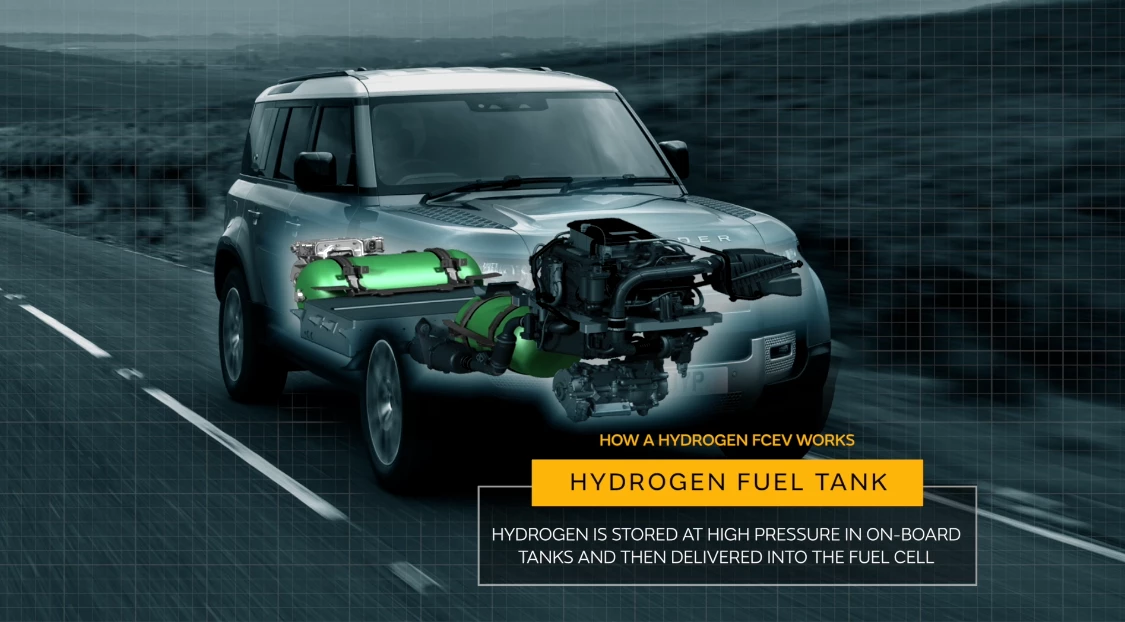The Land Rover Defender is one of the world's greatest frontier breakers, exploring wild spaces that see little human traffic. As such, it's a natural candidate for a greener, zero-emissions powertrain that leaves those spaces as close as possible to how they were before it got there. That could be a battery electric to join the plug-in hybrid, but Land Rover thinks it might be a hydrogen fuel cell that racks up earthly miles, powers through extreme environments and leaves behind only water vapor.
Land Rover has already started development on a Defender FCEV prototype as part of its Reimagine strategy, which sets a goal of eliminating tailpipe emissions by 2036 and achieving net zero carbon emissions across its supply chain, products and operations by 2039.

Known as Project Zeus, the fuel cell research initiative sees Land Rover team with partners to produce a fuel cell vehicle up to the task of meeting very specific Land Rover-grade demands. The Defender FCEV prototype will be designed to explore how fuel cell technology supports key attributes such as long-distance travel capabilities, off-road performance, towing, and smooth operation through the full spectrum of extreme cold and hot weather conditions.
"We know hydrogen has a role to play in the future powertrain mix across the whole transport industry, and alongside battery electric vehicles, it offers another zero tailpipe emission solution for the specific capabilities and requirements of Jaguar Land Rover’s world class line-up of vehicles," says Ralph Clague, head of hydrogen and fuel cells at Jaguar Land Rover.

As previewed in renderings, the Defender FCEV will have transverse rear and longitudinal front high-pressure hydrogen tanks, a centrally mounted battery pack, front-mounted fuel cell and electric drive units, and a front intake for feeding air into the fuel cell to mix with hydrogen. Land Rover believes the hydrogen fuel cell ecosystem is well-suited to its needs because of its high energy density, rapid refueling capability and minimal range loss in low temperatures.
Funded in part by the UK government-backed Advanced Propulsion Center, Project Zeus is headed by Jaguar Land Rover and includes partners like Delta Motorsport, AVL, Marelli Automotive Systems and the UK Battery Industrialization Center. Testing of the Defender FCEV will begin in 2021 and focus on the powertrain's performance in basics like fuel consumption and more demanding driving tasks like off-roading.
Source: Jaguar Land Rover











